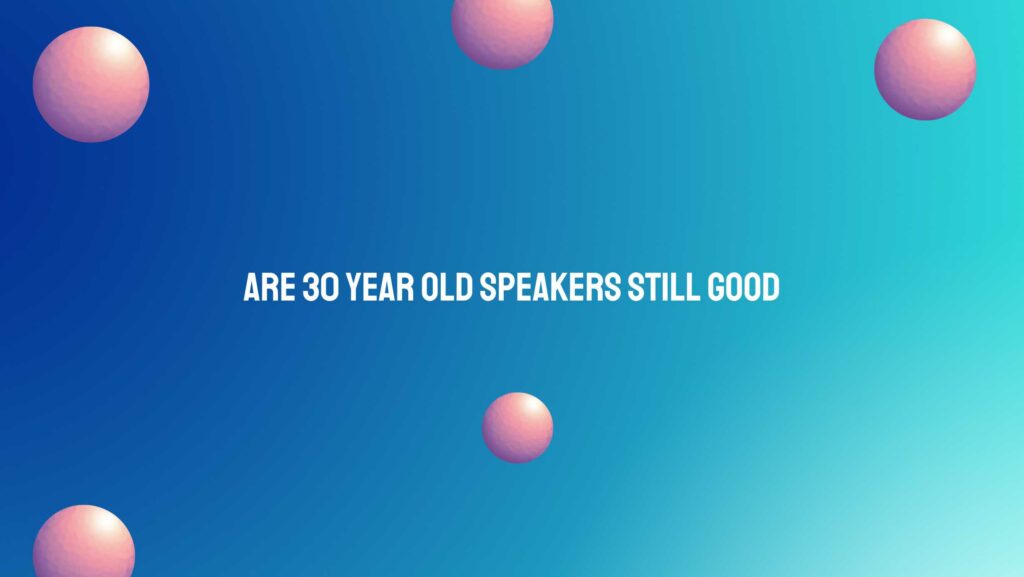The world of audio equipment is constantly evolving, with manufacturers releasing new and advanced speaker models every year. Given this rapid pace of innovation, you might wonder whether older speakers, especially those that are 30 years old or more, are still capable of delivering high-quality audio performance. In this comprehensive article, we will explore the longevity and performance of 30-year-old speakers, discussing factors such as speaker technology, maintenance, sound quality, and their place in the modern audio landscape.
Speaker Technology Evolution:
Over the past few decades, speaker technology has undoubtedly advanced. Newer speakers often incorporate innovative materials, driver designs, and signal processing techniques that can result in improved sound quality and more efficient performance. However, this does not mean that older speakers are necessarily obsolete or incapable of producing good sound.
Maintenance and Care:
The lifespan and performance of any speaker, regardless of age, are heavily influenced by how well it has been maintained over the years. Proper care, including regular cleaning, keeping speakers away from extreme temperatures and humidity, and avoiding overdriving them, can significantly extend their life.
Additionally, the condition of the speaker components, such as the drivers (woofers, tweeters, and midrange drivers) and crossovers, plays a critical role. If these components are well-preserved and free from damage or degradation, older speakers can still perform admirably.
Sound Quality:
The sound quality of 30-year-old speakers can be excellent, depending on various factors, including the original design, build quality, and the type of music or audio they are reproducing. Some vintage speakers from reputable brands have a timeless appeal and deliver warm, classic sound profiles that many audiophiles appreciate.
However, it’s important to note that the preferences for sound characteristics can vary greatly among listeners. What some consider a “vintage” or “retro” sound may not align with the preferences of others who seek a more modern or neutral audio experience.
Compatibility with Modern Equipment:
One potential challenge with older speakers is compatibility with modern audio equipment. Newer devices may have different connectivity options and impedance ratings. For example, vintage speakers might not easily connect to Bluetooth sources, smart devices, or AV receivers with advanced processing capabilities.
To address this issue, audio enthusiasts can use adapters, preamps, or compatible amplifiers to bridge the gap between older speakers and modern audio sources. However, this additional equipment can affect the overall cost and convenience of using vintage speakers.
Value and Collectibility:
Some older speakers, especially those from renowned brands or with unique design features, have become collectible items. Vintage audio enthusiasts and collectors often seek out these speakers for their historical significance and aesthetics. Consequently, the value of well-preserved vintage speakers can appreciate over time, making them desirable for certain buyers.
Conclusion:
In conclusion, whether 30-year-old speakers are still good largely depends on various factors, including their maintenance, original quality, and individual preferences. Well-maintained vintage speakers can certainly deliver impressive sound quality and hold value for collectors and enthusiasts. However, they may require additional equipment or adaptors to integrate with modern audio sources and may not match the preferences of those seeking a more contemporary sound profile.
If you own or are considering purchasing older speakers, it’s crucial to assess their condition, compatibility, and intended use carefully. Ultimately, the decision to use or invest in 30-year-old speakers should be guided by your audio preferences, appreciation for vintage equipment, and willingness to adapt them to modern technology. With the right care and attention, older speakers can continue to provide a rewarding listening experience for years to come.


